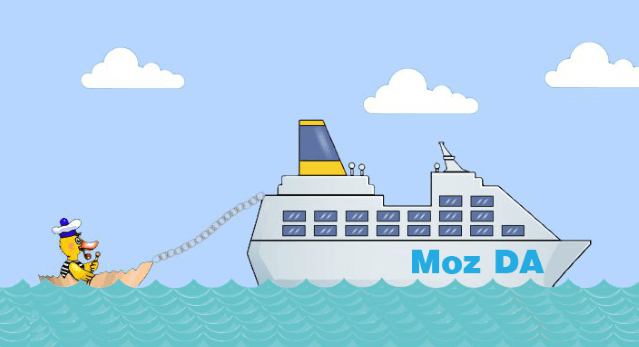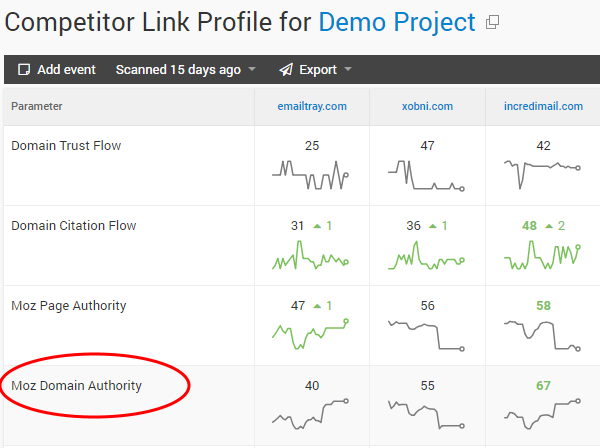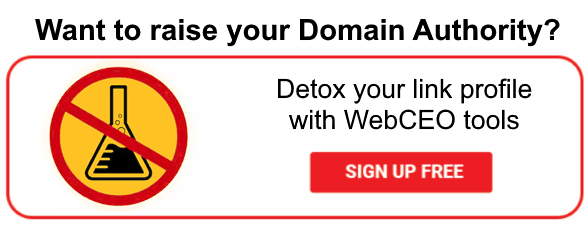
Hottest SEO news: Moz upgrades their Domain Authority metric!
Moz’s plans to make improvements to its DA have been known for a while now. That doesn’t mean you won’t find this post helpful. DA is a very well-known and widely used SEO metric; any changes made to it are absolutely worth discussing if you have a website to run. So keep reading!
This post is for you if:
- You do SEO, but don’t usually follow SEO news;
- You haven’t heard about Domain Authority or don’t quite understand what it is;
- You want to know how exactly Domain Authority has changed and what it means for SEO.
Let’s dive in.
What is Domain Authority?
Domain Authority, or DA for short, is a metric invented by Moz. It looks at the backlinks pointing to a website (i.e. how many domains acknowledge it as an authority), then calculates the probability that it will rank well in Google, on a scale of 0 to 100.
In a nutshell:
- What Domain Authority is: a prediction that isn’t guaranteed to be 100% accurate. However, it does come pretty close, and it does its job well. There is a strong correlation between high DA values and high ranking positions.
- What Domain Authority isn’t: a Google ranking factor or any other sort of an absolute thing that you must always take into account when doing SEO.
I mean, if DA was infallible, there wouldn’t be any need to upgrade it now, would there?
DA is widely used by SEO tools other than Moz – for example, WebCEO displays it in the Competitor Link Profile tool.
Which is why this makes this post all the more relevant to our users.
How has Domain Authority changed?
The motivation for upgrading their site-evaluating metric is pretty simple: Moz simply wanted to make it more effective. How exactly? They did it in three steps:
- Changed their approach to link profile analysis;
- Expanded the list of factors DA looks at when analyzing sites;
- Scheduled daily updates for the new DA.
Now, a few words about each.
DA has become more scrupulous about evaluating linking domains and their authority. It takes into account the fact that all ways of acquiring backlinks are not equal. Certain methods – such as link spam and buying links – are frowned upon by Google, as it prefers links to be genuine and reflect honest feedback from users. Therefore, the new DA will lower the value of those “dishonest” links in its algorithm as well.
What’s more, the Moz people have increased their link index to a whopping 35 trillion. It will let them detect link manipulation much more effectively; in fact, such a drastic increase is a must if they want to be good at this job.
What does this all mean?
The obvious consequence of this upgrade is that many (if not all) websites are going to see a drop in their Domain Authority score. However, as stated earlier, DA does not affect Google rankings, so that’s nothing to worry about. At worst, everyone will start being pickier about who links to them… And that could make improving Google rankings more difficult.
Next, the newer and longer list of factors determining a site’s DA.
It’s actually way simpler than it sounds.
The new DA incorporates another Moz metric called the Spam Score. What is the Spam Score? It compares your site against other sites that have been penalized or even banned by Google. The more “spammy factors” your site shares with them, the higher your score, and vice versa.
In short, depending on how “spammy” your linking domains are, your renewed DA score could go either way. You might even find it hasn’t changed at all.
Daily updates: self-explanatory. Moz used to update DA monthly, so this is a step forward without a doubt.
What’s next?
This update’s consequences are surprisingly much less dramatic than the update itself.
The most important takeaway is this: carry on as usual. Only search engines can change SEO as we know it – for example, if Google alters its algorithm. For now, SEO remains the same, as does one of its core principles: build your backlinks wisely. Reliable, high-quality, authoritative and context-relevant websites are your best friends as always.
Are you still worried your Domain Authority is too low? In that case, I have good news for you. High-quality backlinks aren’t the only way to increase it – another way is to make a revision of your link profile. Test your site now and see if you feel you should remove any toxic backlinks.




